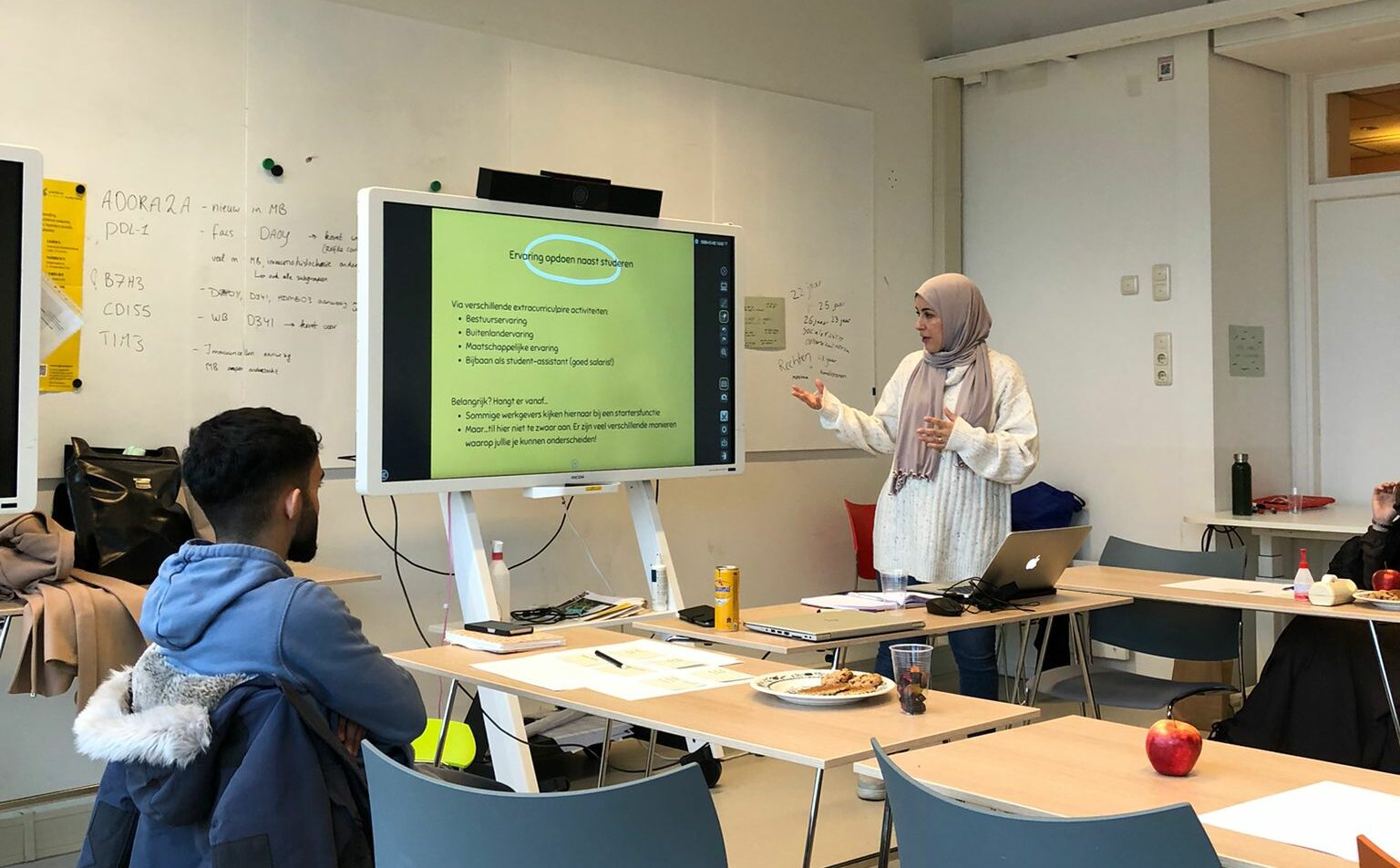News
Chahida as a guest on radio programme News&Co: studying without a “university instruction manual” is pretty tough
On Feb. 10, Chahida was a guest on the radio program News and Co. Chahida is a lecturer at the Faculty of Social Sciences and project leader of UP-Community. Together with Dieuwke Teertstra, she talked about students who are the first in their family to study and who do not always find it easy to find their way in student life. To help these “first-generation students” on their way, Utrecht University has started a new program.
The group of first-generation students is very diverse, with all kinds of people coming from the city or a village, with different backgrounds, think about diversity in gender or age. So it is a very diverse group with one common factor, which is that they are all the first or one of the first in the family to study at higher education. This is quite a large group: about 30% of new students are first-generation students.
Instruction manual for university
Chahida, too, was once a first-generation student herself. The main thing she encountered during her college years was that she did not feel at home and felt that her fellow students had been given “some kind of instruction manual at commencement” that she had not. So she was fine with the content of the study, but really everything that came with it, “all those little tricks,” she was simply less familiar with. For example, where was the best place to do an internship or that it was very smart to do volunteer work in addition to your studies or that if you aspired to a political career, it was quite useful to join the youth wing of a political party. All that hand-holding about internships or board years was unknown to her.
Different generation, same challenges
When Chahida was a student, the prevailing idea was that you are primarily a student and you just had to keep up with everything else. It was less about student success and more about study success. Diversity programs, such as UP-Community, did not exist back then. It has been a while since Chahida herself was a student, but the challenges she experienced still exist for today’s first-generation students. Says Chahida, “Ideally, I wish I could say that after almost 20 years, things have changed almost completely and first-generation students now do know their way around, but unfortunately that is not the case.” Chahida still hears stories from first-generation students about things they experience during class or in college. There are also still students who consider dropping out because they cannot identify with others and think, “I don’t belong here.”
Text continues below photo.

Misunderstood
So this group of students often lacks the tips and tricks that non-first-generation students can benefit from, but the phenomenon goes beyond that. First-generation students can also encounter misunderstanding in class. Chahida: “Often the students I focus on have practically educated parents and sometimes nasty remarks are made about them or that they wouldn’t understand certain things. That’s pretty hurtful when you’re sitting there as a student with practice-educated parents.”
Profound effects
In addition to first-generation students dropping out more often, there are also more first-generation VWO students who still choose college because they think it’s a safer option, even though they have fine capacity to go to college.
“That’s not because of a specific or better-fit study in college of applied sciences, which is quite possible, but really because they want to make it as safe as possible for themselves.”
UP Community
UP-Community consists of a broad program, mindful of diversity among its target audience. It focuses on talent development, mentoring and making the hidden curriculum visible. The latter means that there are unwritten rules at university or college that are not always immediately clear to everyone. Chahida: “we offer our students, who can become members, the development opportunities and network what non-first-generation students do have at their disposal.” Should you be a first-generation student in need of a mentor we will pair you up with one, but if you want to become a member for just the social activities or because you could use some extra help with job training, you are also welcome. It’s up to the student to choose, “What do I want to use, what do I need and what don’t I need.”
Chahida: “UP-Community should provide a community where you can surround yourself with people you can identify with and identify with.”

